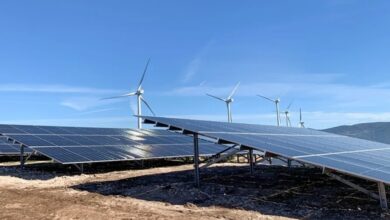What Is Causing The Global Energy Shortage?
Here's how the demand for natural gas is causing a global energy shortage.

A possible energy shortage is putting the world on alert, as the main natural gas exporters could put restrictions on the supplies of this resource. Photo: Pixabay
LatinAmerican Post | Brandon Martínez Salazar
Listen to this article
Leer en español: ¿Qué hay detrás de la escasez mundial de energía?
A possible energy shortage is putting the world on alert, as the main natural gas exporters could put restrictions on the supplies of this resource, the consequences of which range from closures in some sectors of the economy to increases in electricity service rates.
This is a worrying situation especially for the countries of the northern hemisphere, where the winter season is approaching and, therefore, demand for heating in homes is increasing. This growing desperation would represent a severe blow to Asia, Europe and Latin America, geographic regions that are just recovering from the economic crisis produced by the pandemic.
Likewise, manufacturers of products such as chemicals, steel, ceramics, and other types of goods need exorbitant amounts of energy to be able to develop their commercial operations.
What does natural gas have to do with a possible energy crisis in the coming months? The answer to this question is very simple, it is due to the popularity that natural gas has had as an alternative energy source in recent years. The fact is that many countries have opted for this fuel because it generates fewer greenhouse gas emissions than coal. This makes it a clean, more environmentally friendly form of energy.
Also read: Factories to capture carbon: an opportunity to combat climate change
On the other hand, the United States, the largest natural gas exporter on the planet, has taken advantage of the global demand for this resource. However, the rise in supply prices in the North American country has served as an excuse to stop shipments abroad and, therefore, it has put in check the countries that depend on it to produce energy.
Meanwhile, South Korea, for the first time since 2013, raised prices on invoices. Spain for its part withdrew the benefits of the sector to help consumers, which has exacerbated the crisis to meet demand.
Is a promising future of energy in China?
China is the largest importer of natural gas in the world and its demand for this resource has increased by 13% due to the fact that the country plans to transition to clean energy.
However, in the face of such a shortage event, the Chinese have already designed a nuclear reactor that promises to be the solution to electricity generation and which will possibly end up being the best alternative for countries in 2030.
This first experimental nuclear plant that China started months ago, generates energy from molten salt with liquid thorium instead of uranium. A true revolution to traditional reactors since this generator does not require water and will be able to work perfectly in desert regions such as Taklamakan, popularly known as "the sea of death".
According to Forbes " Thorium is a radioactive silver metal named after the Norse god of thunder, it is much cheaper and more abundant than uranium, and it cannot be easily used to create nuclear weapons."
In this way, China intends to completely ignore carbon by 2060 with the implementation of this prototype.




